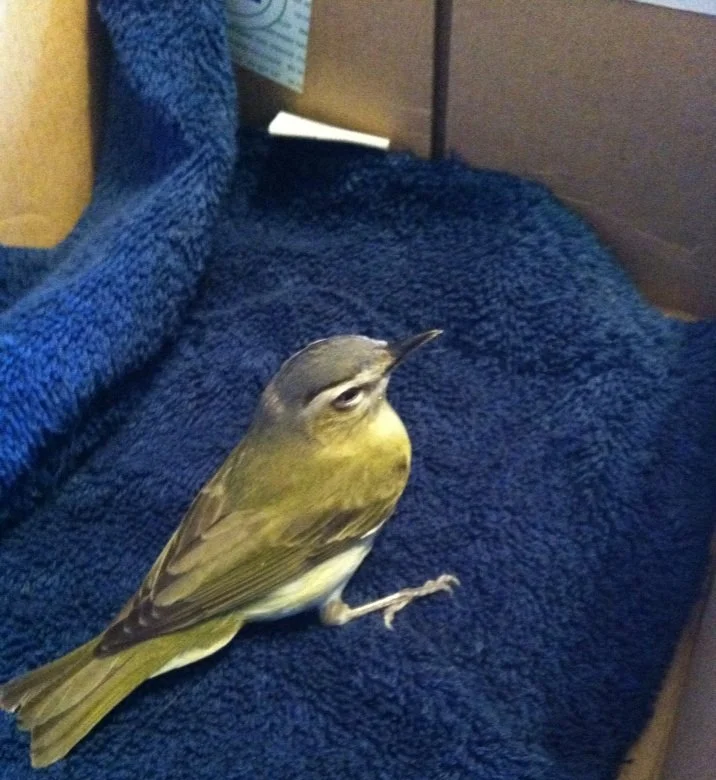The wildlife education center does not accept, treat, or transport injured or abandoned wildlife. find a rehabilitator through the new york state department of environmental conservation or via the list below:
Addition listing: Colin Coyne 845.234.8509. He is local to Cornwall and will assist with honey bee swarms.
There is a fawn in my yard.
The best course of action is to leave the fawn where it is and do not disturb it. Keep children and pets away from the fawn. In spring, it isn't uncommon to discover a fawn lying motionless in the grass. The mother has not abandoned the fawn. A fawn's defense against predators is to lay still to prevent drawing attention to itself. The mother will return to move the fawn when it is safe. Fawns will not move, even if you approach them, touch them, or attempt to pick them up. Do not mistake this behavior as permission to touch them. To the fawn, you are a predator and it is trying to remain hidden from you. If the fawn is still there after 48 hours and you're sure that the mother has not returned, call a rehabilitator from the link above.
I found a nest of baby rabbits.
The best course of action is to return the baby rabbits to the nest where you found them. Keep children and pets away from the rabbits. Contrary to popular myth, the "scent of humans" on baby rabbits does not deter the mother from caring for them. Mother rabbits leave their babies in shallow nests in the ground and return to nurse a few times during the morning and evening. Young rabbits have specific nutritional needs that are not easily replicated in captivity, even by rehabilitators; their mother is the best resource for food. If you have a dog that continues to pester the nest, keep the dog on a leash. In two to three weeks, the rabbits will be gone. If you want to be sure the mother has returned to the nest, place two small twigs in an "x" shape across the top of the nest. When the mother returns to nurse, the twigs will be moved.
I found a baby bird.
The best course of action is to leave the baby bird where you find it or attempt to find the nest it fell from and return it to the nest. Baby birds frequently do not need humans to intervene while they are trying to fledge the nest. Contrary to popular myth, birds have no sense of smell and the "scent of humans" will not deter a mother bird from caring for her young. Please do not attempt to feed and care for a baby bird on your own. Songbirds are federally protected and may not be taken from the wild by the general public for any reason. If you believe the baby to be injured, please contact a rehabilitator from the link above.
I found an injured adult bird.
The best course of action is place the bird in a cardboard box without food or water in a warm, quiet place and do not disturb it. Keep children and pets away from the bird. Contact a rehabilitator from the link above. Do not attempt to feed or care for a bird on your own. Songbirds are federally protected and may not be taken from the wild by the general public for any reason.
I have an animal living under my shed/garage/house.
Neither the Wildlife Education Center nor New York licensed rehabilitators assist in areas of pest removal (i.e. groundhogs, skunks, porcupines, woodpeckers, etc.) Relocating an animal to another area or property is against the law without proper permits through the New York State Department of Environmental Conservation. There are licensed pest removal services with proper permits that can assist in these situations.
There is a snake in my basement.
The best course of action is NOT to kill the snake. Snakes eat mice; mice eat your food and harbor ticks and disease. Out of the 18 species of snakes in New York, only three are venomous; those three species live in concentrated areas of the state. You are much more likely to have encountered a non-venomous snake (such as a rat snake, corn snake, or milk snake.) Snakes are more afraid of you than you are of them. If you're comfortable leaving the snake in your home, it's unlikely that you'll see it again. If you're not comfortable leaving it in your home, call a pest control company to assist you in removing it.

